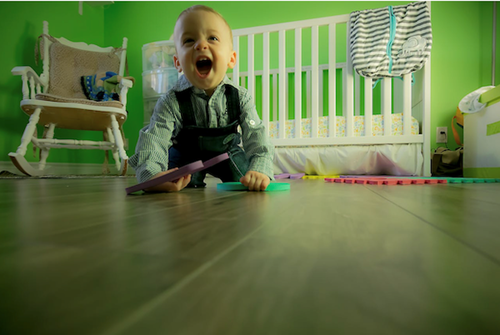How to Use Music to Train Fine Motor Skills in Toddlers
As your little one grows, their journey to master fine motor skills is full of tiny but significant milestones. Some skills may seem basic, but for toddlers, they are crucial achievements that might need a helping hand.

The good news is that you can make everything a bit more fun by incorporating music into the mix. It may seem odd, but music can be incredibly effective in helping little ones master fine motor skills.
If you’re wondering how, here are a few practical methods that will keep your bundle of joy entertained.
Hand Clapping Games
Babies and toddlers love music! Even better, they love to move to music, and they naturally understand how rhythm works.
So why not take advantage of the magic power of music and help your junior with their hand clapping? For best and rapid results, use a catchy and easy-to-understand song to capture your baby’s attention.
As the song goes on, clap following the rhythm, and encourage your baby to do so as well. While it may take a few tries, they’ll quickly learn how to coordinate their clapping motion with the song’s rhythm. Plus, they’ll do so while laughing and having fun, which is always a dopamine booster for the parents.
As they get better, switch the song and introduce more complex clapping movements and games. This way, you’ll develop their hand-eye coordination.
Musical Instruments
Instruments like tambourines or maracas are fabulous for toddlers (as long as the instruments are adequate for their age). They may not be able to compose symphonies or sing an intelligible song, but they love to make sounds.
While grooving to the beat, their small wrist and finger movements get a workout, which helps with enhancing dexterity. And once they get better with simple instruments that are easy to grab and grasp, you can introduce playful activities.
One fun activity is allowing your child to play with toy drums using lightweight sticks or their hands. This type of play doesn't just unleash their inner musician – it also requires precision and control, and each drumming session stimulates muscles essential for fine motor skill development.
Extra Tip
Encourage your kid(s) to participate in fun crafting activities, where they’ll have to use their hands to create truly magnificent pieces of art. You can play their favourite music in the background while teaching them how to use child-safe tools (like scissors) under supervision.
At the end of the day, you’ll have a fun bonding experience, and you’ll end up with some pretty amazing memories.
Online Games
Most toddlers nowadays know how to use a smartphone or a tablet. When used selectively and under supervision, touch-screen technology can offer some interesting benefits. For instance, swiping and tapping on a tablet or smartphone requires a certain level of finesse and can be educational if the content is appropriate.
Fun, interactive, and music-based games like the ones from ABCmouse, can help further your child’s development in various ways. First, actions like tapping, swiping, or dragging objects around the screen mirror physical movements like picking up and sorting real-life objects.
Also, drawing and colouring games will have kids create shapes and fill in pictures, which will help refine their hand-eye coordination and learn about pressure control on a flat surface.
Singing & Dancing
Singing songs with actions is a great place to start. Think "The Itsy Bitsy Spider" or "Twinkle, Twinkle Little Star." Encourage your child to mimic the movements, which often require careful coordination of their fingers and hands.
Dancing is also a fantastic way to improve motor skills. It might not seem like fine motor skill development at first glance, but certain dance moves encourage precision and balance as well as coordination.
Lastly, try introducing fingerplays and hand puppets during music time. This approach aids in moving each finger individually, which is terrific for dexterity.
Wrap Up
Music isn't just something you listen to when you want to relax - it’s a complex communication system that babies and toddlers understand all too well. By integrating rhythm and melody into everyday activities, you'll be able to tune up your little one's skills in a fun and vibrant way.
So go ahead, strike a chord with musical games, and let the symphony of growth play out. From hand clapping games to dance parties, there’s a whole orchestra of motor skill exercises awaiting your maestro-in-training.
Embrace these innovative methods and watch as music becomes a harmonious part of your child’s developmental journey!